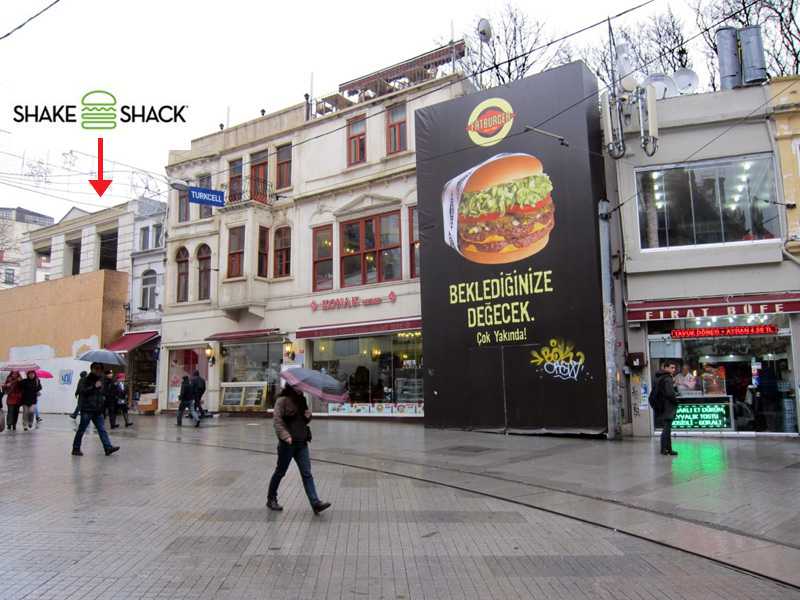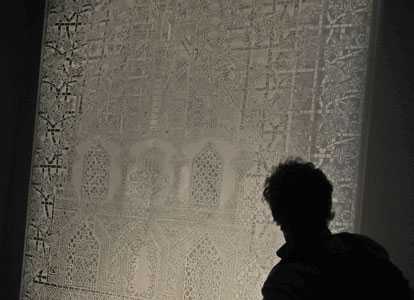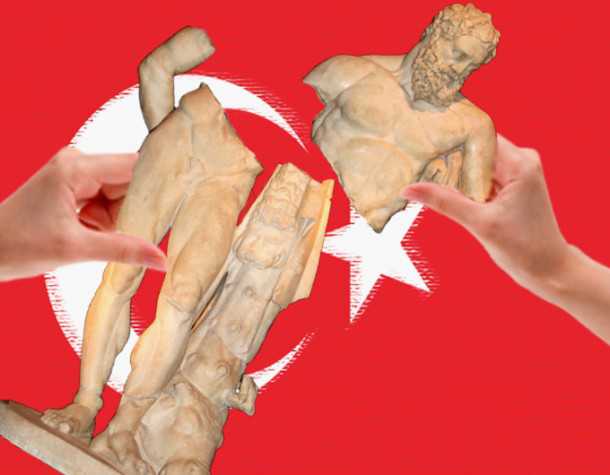Dogs in Islam
Traditionally, dogs have been seen as impure, and the Islamic legal tradition has developed several injunctions that warn Muslims against most contact with dogs. Unfortunately, many Muslims have used this view to justify the abuse and neglect of dogs, even though cruelty contradicts the Qur’an’s view that all animals form “communities like you.” We are pleased to present several articles examining the place of dogs in Islam.
Animal Abuse and Welfare in Islam
by Dr. Ayoub M. Banderker (BVMCh),
veterinary surgeon
Animal abuse, cruelty, and/or neglect form part of the many social ills plaguing the Muslim community.
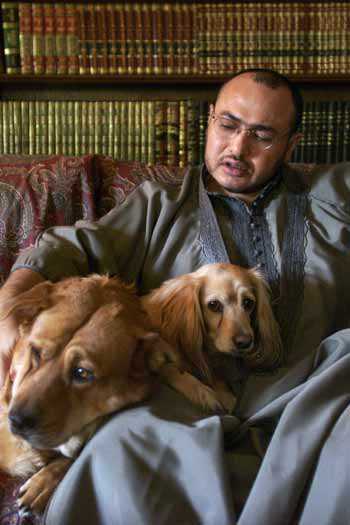 Last Ramadaan, I wrote an article highlighting the phenomenon whereby misinformed Muslims took their dogs (and/or cats) to the animal hospitals or mobile clinics during Ramadaan, to have them put to death by lethal injection. The reason given by the majority of these Muslims was that Islam forbids them to keep a dog. Also encountered was when an animal that had been ill for a prolonged time and the disease had progressed to an almost terminal state was it only then brought in for veterinary attention. When asked why they waited so long, the Muslim owner would use Islam as a reason, stating that it is not permissible to touch a dog. This still happens.
Last Ramadaan, I wrote an article highlighting the phenomenon whereby misinformed Muslims took their dogs (and/or cats) to the animal hospitals or mobile clinics during Ramadaan, to have them put to death by lethal injection. The reason given by the majority of these Muslims was that Islam forbids them to keep a dog. Also encountered was when an animal that had been ill for a prolonged time and the disease had progressed to an almost terminal state was it only then brought in for veterinary attention. When asked why they waited so long, the Muslim owner would use Islam as a reason, stating that it is not permissible to touch a dog. This still happens.
Alhamdulillaa, during this Ramadaan, there has been a significant reduction in the number of Muslims who have gone to animal welfare organizations to have their animals put to death.
However, cruelty and neglect of animals still occur daily throughout the world. The approach of the holiday season sees many animal welfare organizations get an influx of dogs and cats brought in to be put to death during this time. Healthy, happy animals belonging to Muslims are also brought in to be put to death. This is a very disturbing and un-Islamic action. If one cannot afford to feed, shelter, and maintain one’s animals, and a new home cannot be found for them, take them to one of the many animal welfare organizations where there is at least a chance of the animal’s finding a new home. The real tragedy is that many of these Muslims still do this in the name of Islam and openly express such ignorant views. This contributes to propaganda against Islam. When a non-Muslim is cruel to an animal, it is considered an individual’s action, but when a Muslim does it, non-Muslims see it as an Islamic practice.
I cannot overemphasize the need to have one’s cats or dogs sterilized. Having pets sterilized would help to prevent unwanted litters, thereby reducing the amount of unwanted animals. It is much better than abandoning the animals, which many Muslims are also guilty of. Abandoned pets cannot fend for themselves, with the result that they starve and experience untold suffering, cruelty, and an eventual, agonizing death.
All animals are a part of Allah’s creation and belong to Allah (swt). Muslims are custodians of this beautiful planet. How we care for animals and what we use them for we will be accountable for to Allah (swt). All of creation is Muslim, submitting to Allah’s will—only man and jinn are granted a freedom of choice. So yes, even animals are Muslim.
In the Holy Qur’aan (S4:36) we are advised to do good to “… what your right hands own …” According to the commentator Imaam Faghruddin al-Rhazi, this refers to all those who have no civil rights, including animals. Thus, the verse lays down the duty of being good toward animals.
All things “…have been created for you …” for our benefit (S2:29). It thus becomes our duty to protect, employ with dignity, and promote the well-being of any animal in our care. In this way, we are expressing our thankfulness to Allah (swt) for His blessings in a practical manner. (Qur’anic Foundations and Structure of Muslim Society, Mawlana F.R. Ansari, vol. 2, pp. 125-126)
Every animal has been created for a purpose. It is a duty upon every human being to respect Allah’s creation. If we ill treat any of His creation, we will be questioned about it on the Day of Judgment. Sayyidina ’Umar (ra) was very concerned about the animals during his rule as Amir or head of the Islamic empire.
Let me clarify a few myths and make a few points:
1. It is NOT haraam to own a dog, though it is not hygienic to keep a dog in the house.
2. It is NOT haraam to touch a dog or any other animal. If the saliva of a dog touches you or any part of your clothing, then it is required of you to wash the body part touched and the item of clothing touched by the dog’s mouth or snout.
3. It is incumbent upon all Muslims who own animals, whether for farming or work purposes or as pets, to provide adequate shelter, food, water, and, when needed, veterinary care for their animals. Arrangements must be made, if one is going to be away from home, to have one’s animals taken care of as well.
4. It is haraam to keep a dog or any other animal on a short lead for long periods without food, water, and shelter. Dogs need exercise and are social creatures who form organized “family” structures in nature. Dog owners therefore need to spend time daily with their dogs.
5. It is cruel, and therefore haraam, to keep any animal in a cage so small that it cannot behave in a natural way.
6. Fireworks cause untold suffering to most domestic animals because of their acute sense of hearing.
7. It is haraam to participate in any blood “sport,” like dog fighting and trophy hunting.
No animal has been cursed in any way. Animals are referred to in many instances in the Qu’ran. In Surah Kahf, mention is made of the companions of the Cave and their dog. (S18: 18-22)
We would love for Allah to bestow His mercy upon us, so let’s show mercy and compassion to all His creation. This will also give non-Muslims a true reflection of Islam, aiding da’wah.
There are many Muslims who care well for their animals, and this article is aimed at those who are misinformed.
The appeal goes out to those Muslims: Please do not abuse or neglect any animal. This gives a distorted picture to others who are not Muslim.
May Allah be pleased with our efforts.
| Veterinary surgeon, Dr. Ayoub Banderker, BVMCh, wrote this article to coincide with the holy month of Ramadaan. |
As salaamu alaikum
Dear Brothers and Sisters,
The holy month of Ramadaan has dawned upon us. All believing Muslims look forward to this month as [an uplifting spiritual] period ? in service of Almighty Allah (swt). However, there is one very disturbing event that occurs with the approach of every month of Ramadaan. It has absolutely nothing to do with Ramadaan but has everything to do with ignorance, misinformation, and misinterpretation of the deen of Islam. Our community is faced with many social ills, like child abuse, [the abuse of] women, drugs, etc. Islam is [a] holistic way of life, encompassing every aspect of one’s life and environment. Animal abuse, cruelty, and/or neglect form part of the social ills plaguing the Muslim community, locally and globally.
Since February 1999, I have worked as a veterinary surgeon for organizations that primarily serve to see to the health care of animals belonging to the poor [in] underprivileged communities. With the approach of Ramadaan (and also the holiday season), many Muslims bring their dogs (and/or cats) to the animal hospitals or mobile clinics to have them ? euthanized (that is, put to death by lethal injection). The reason given by the majority of these Muslims is, “It is the month of Ramadaan, and my religion forbids me to keep a dog.” Another scenario encountered is when an animal [who] has been ill for a prolonged time [is not brought in for veterinary attention until] the disease has progressed to an almost terminal state ? When asked why they waited so long to bring in their dog, the Muslim owner will then, again, use Islam as a reason for his/her apathy, stating that it is not permissible for him/her to touch a dog.
We have a reported case of a dog [whose] legs [were] wrapped in plastic bags [and he was] then carried by two people on either side ? into the hospital. Once again, Islam [was] used as an excuse for this un-Islamic action. There are many more cases of animal cruelty and/or neglect in the name of Islam occurring daily.
Many of the animal welfare organizations in Cape Town get an [increase in the number] of dogs and cats [who are brought] in to be put to death during this time. Yes, there are many people that, for some or other reason, come to have their animals euthanized. In this instance, I am referring particularly to healthy, happy animals belonging to Muslims, being brought in to be put to death. This is a very disturbing and un-Islamic action. If one cannot afford to feed, shelter, and maintain one’s animals, and a new home cannot be found for them, then [they should be taken] to one of the many welfare organizations, like the [Society for the Prevention of Cruelty to Animals], Animal Anti-Cruelty League, [or] Animal Welfare Society, where there is at least a chance [that] the animal [will find] a new home. Having existing pets sterilized would also help to prevent unwanted litters, thereby reducing the [number] of unwanted animals. It would be far better than abandoning the animals, which many Muslims are also guilty of.
The real tragedy is that many of these Muslims believe that they are [performing these cruel acts] in the name of Islam and openly express such ignorant views. This not only feeds the propaganda against Islam, but also gives non-Muslims, who may have been interested in Islam, a very negative view of Islam. It hurts tremendously when fellow Muslims use the beautiful deen of Allah and the month of Ramadaan to justify the cruelty to and putting to death of healthy animals.
A dog, as every other living [being] on this earth, is a part of Allah’s creation. We, as Muslims, are custodians of this beautiful planet. A dog, if in our possession, as with everything else we claim to own, belongs ultimately to Allah (swt). [We will be accountable for how] we look after our animals and what we use them for ? to Almighty Allah (swt). All of creation is Muslim, submitting to the will of Allah (swt), only man and jinn are granted a freedom of choice. So yes, even animals are Muslim.
In the Holy Qur’aan (S4:36), we are advised to do good to “? what your right hands own? .” According to the commentator, Imaam Faghruddin al-Rhazi, this refers to all those who have no civil rights, including animals. Thus the verse lays down the duty of being good [to] animals.
All animals are part of Allah’s creation, and each animal has been created for a purpose. It is a duty upon every human being to respect Allah’s creation. ? It, thus, becomes our duty to protect, employ with dignity, and promote the well-being of any animal in our care. In this way, we are expressing our thankfulness to Allah (swt) for His blessings in a practical manner.
If we ill-treat any of His creation, then we will be questioned about it on the Day of Judgment. Sayyidina ‘Umar (ra) was even concerned about the animals during his rule as Amir (or head of the Islamic empire). Let me clarify a few myths:
- It is not haraam to own a dog, though it is not hygienic and, therefore, not permissible to keep a dog in the house.
- It is not haraam to touch a dog – or any other animal, for that matter. If the saliva of a dog touches you or any part of your clothing, then it is required [that] you ? wash the body part ? and the item of clothing [that was] touched by the dog’s mouth or snout.
- It is [necessary for] every Muslim who owns animals, whether for farming/work purposes or as pets, to provide adequate shelter, food, water, and, when needed, veterinary care for their animals. Arrangements need to be made, if one is leaving for Hajj or going to be away from home, to have one’s animals taken care of, as well.
- It is haraam/not permissible to use one’s dog for dogfighting, as one is causing harm to them. No, it is not natural, for in nature, the weaker would submit and retreat, and the stronger would not continue to pursue in order to kill.
No animal or any of Allah’s creation has been cursed in any way. In Surah Kaf, mention is made about the companions of the cave and their dog (S18:18-22). We would love Allah to bestow His mercy on us, so let’s show mercy and compassion to his creation. Let us use the intensity of the spiritual light of Ramadaan to obliterate the darkness of ignorance that has enveloped us. It must be stated that there are many Muslims who care well for their animals and that this article is aimed at those who are misinformed. The appeal goes out to those Muslims: Please do not abuse the deen of Islam by [using] it [as] an excuse [to put] your animals to death. This gives a distorted picture to others who are not Muslim. May Allah be pleased with our efforts. Please note that, during the time you read this, hundreds of healthy animals will be put to death in the name of Islam.
This article originally appeared in Animal Voice, published by Compassion in World Farming, South Africa. Visit www.animal-voice.org for more information.
Dr. Khaled Abou El Fadl
Dr. Khaled Abou El Fadl, professor of Islamic Law at UCLA and holder of many ijazat (teaching diplomas) from traditional Sunni scholars in the Middle East, has come to believe that the ahadith (prophetic traditions) about dogs that form the basis of legal injunctions against contact with them are fabrications.
| Dr. Khaled Abou El Fadl discusses a fatwa about dogs in Islam in this excerpt from the new edition of his bookConference of the Books. |
An Islamic Scholar’s Kindly View of Dogs
An excerpt from the Los Angeles Times, January 2001
Dogs and Books as Symbols of His Effort
The man at the center of this ideological furor is physically unimposing, with a short, stocky frame, light brown eyes, and olive skin. His home is dominated by two elements that symbolize much about Islam’s ideological tensions today: dogs and books.
(Khaled) Abou El Fadl loves to use dogs to illustrate what he regards as the puritans’ willful ignorance of Islamic tradition and an oppressive emphasis on law over morality.
In much of the Muslim world, dogs are decidedly not man’s best friend. Abou El Fadl says he was taught that they were impure and that black dogs in particular were evil.
Religious traditions hold that if a dog – or woman – passes in front of you as you prepare to pray, it pollutes your purity and negates your prayer. Dogs are permissible as watchdogs or for other utilitarian purposes but not simply for companionship. Abou El Fadl says this zealous adherence to doctrine led one religious authority to advise a Muslim that his pet dog was evil and should be driven away by cutting off its food and water.
Many Muslims say this caution toward dogs is fundamentally a matter of hygiene. Many devout Muslims follow such rules without question, for submission to God is Islam’s highest call whether the reasons for divine law are apparent or not, according to Sheik Tajuddin B. Shuaib of the King Fahd Mosque.
| Dr. Khaled Abou El Fadl with his rescued dogs |
But Abou El Fadl prides himself on questioning just about everything. He could not fathom a God who would condemn such loving, loyal creatures. So about five years ago, he set out to investigate.
After a lengthy process of textual research and prayer for divine guidance, he concluded that reports against dogs were passed on through questionable chains of transmissions or contradicted by more favorable reports – for instance, one story of Muhammad praying with his dogs playing nearby.
Some reports against dogs bear uncanny similarities to Arab folklore, Abou El Fadl says, leading him to suspect that someone took the tales and attributed them to the prophet.
As Abou El Fadl speaks, Honey snoozes near his side. The yellow cocker spaniel mix was abandoned by his owners and was cowering in the corner of an animal shelter, dirty and racked by seizures, when the scholar and his wife rescued him.
They also rescued Baby, a black shepherd a day away from being killed, and Calbee, an abused dog who smelled of garbage for a year and still feels secure only when curled up inside a plastic laundry basket.
“Dogs represent my rebellion against ignorance about the basis of actual historical law,” Abou El Fadl says. “They are a symbol of the irrationality of our tradition, the privileging of law over humaneness.”
How, he asks, pointing to Honey, who constantly follows him and nestles at his side, does God “create animals with these natural tendencies and then condemn them as thoroughly reprehensible?”
From Newsweek, April 15, 2002:
Take that matter of dogs, for instance. To the literalists, the prohibition against dogs as pets is clearly delineated in one of the hadiths, the traditional accounts of the life and sayings of the prophet Mohammed. In their view, the hadiths and the Koran unambiguously set forth the laws of sharia. But as Abou El Fadl points out, determining which of the tens of thousands of hadiths are authoritative requires both knowledge and critical analysis. One must evaluate the reliability of the sources and assess how consistent the hadiths are with the moral vision of the God who speaks in and through the Koran. In the case of the dog hadith, Abou El Fadl found it hard to believe that the same God who created such companionable creatures would have his prophet declare them “unclean.”
Investigating the sources, he discovered that the hadith in question not only derived from an unreliable chain of sources but reflected views far more consistent with pre-Islamic Arab customs and attitudes. What’s more, he says, he found that a hadith from one of the most trustworthy sources tells how the Prophet himself had prayed in the presence of his playfully cavorting dogs.

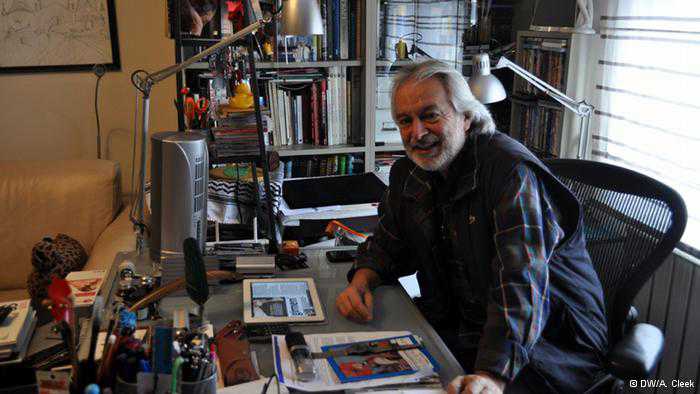
 Rozental still has a company that makes writing instruments
Rozental still has a company that makes writing instruments Rozental says he always finds a way to express criticism
Rozental says he always finds a way to express criticism